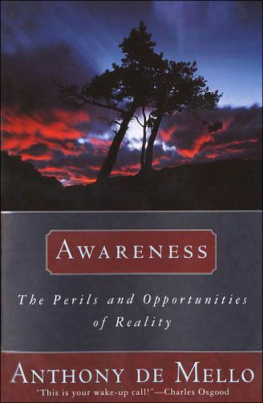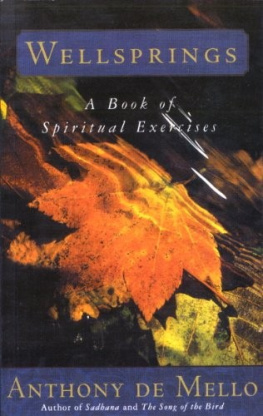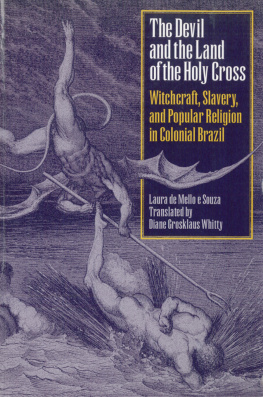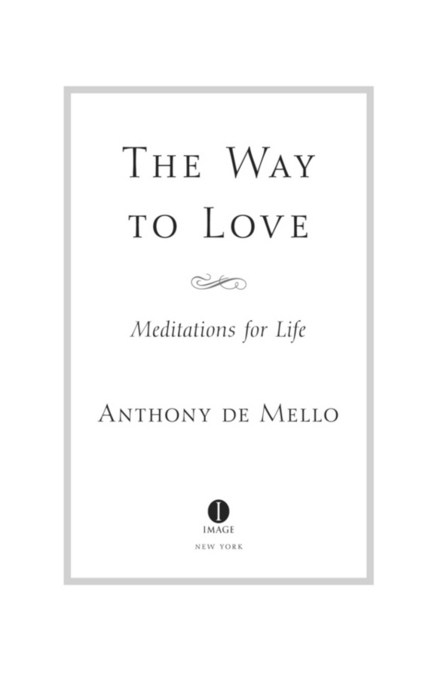Copyright 1991 by Gujarat Sahitya Prakash of Anand, India
Introduction 1992 by J. Francis Stroud
All rights reserved.
Published in the United States by Image Books,
an imprint of the Crown Publishing Group,
a division of Random House, Inc., New York.
www.ImageCatholicBooks.com
IMAGE and the Image colophon are registered trademarks of Random House, Inc.
Originally published in India as Call to Love by Gujarat Sahitya Prakash in 1991. Subsequently published in hardcover in the United States as The Way to Love by Doubleday, a division of Random House, Inc., New York, in 1992.
| Imprimi potest: | Lisbert DSouza, S.J. |
| Provincial of Bombay |
| March 11, 1991 |
| Imprimatur: | +Stanislaus Fernandes, S.J. |
| Bishop of Ahmedabad |
| March 18, 1991 |
Library of Congress Cataloging-in-Publication Data
De Mello, Anthony, 1931
[Call to Love]
The way to love: the last meditations of Anthony de Mello / Anthony de Mello
p. cm.
Originally published: Call to love. India : Gujarat Sahitya Prakash, 1991.
1. Meditations. I. Title.
BX2182.2.D3868 1992
242dc20 92-6243
eISBN: 978-0-307-80547-8
v3.1_r1
C ONTENTS
I NTRODUCTION
Y ears ago, when I first heard of Tony de Mello, S.J., I didnt believe what I heard. The story I am about to tell has bearing on the book you are about to read.
I was told that Tony gave a retreat to sixty fellow Jesuit priests and spoke to them six hours a day for eight days. I remember saying, No Jesuit listens to another Jesuit six hours a day for eight days. When the fact was insisted on, I remember asking, Who made that retreat? The names of some very impressive Jesuits (impressive, at least, to me) were mentioned. It was then, like doubting Thomas in the Scriptures, I said, This I have to see and hear for myself.
Thus began the journey with the man who would affect my life so profoundly that, years later, I wouldnt even recognize the person I was those years past. And not I alone, but thousands of others like me.
The occasion of my first meeting Tony de Mello now seems rather prosaic. He was asked to give a weekend retreat to a group of lay people. He agreed to do this on his way back to India from Rome. I asked to be put on that retreat just to meet and experience the man. It was an unforgettable weekend up in Saddle River, New Jersey, amid the snows of February.
I will never forget the feeling of liberation; the sense he made of spirituality, of prayer, of the meaning of life; his humor; his marvelous storytelling. And it was all done in such a personal style. Years later, when he was speaking by television satellite to more than three thousand college students, he maintained that personal style. About twelve years ago, he remarked, I discovered something that revolutionized my life. He had met a rickshaw driver in Calcutta named Rinsai, who, although he was dying of a painful disease and was so poor that he had to sell his skeleton before he died, still was a man filled with faith and interior joy. I suddenly realized, Tony continued, I was in the presence of a mystic who had rediscovered life. He was alive; I was dead. He was a man who had reincarnated himself during this life.
The reason I say that the story of my meeting Tony has bearing on the book you are about to read is because when I came upon this manuscript, although I was very familiar with all that he had written (and spoken), I was amazed at how these small but powerful meditations evoked in me the same feelings I experienced when I first encountered him. Just reading through these pages brought back the wonderful sense of challenge, the spiritual provocation that Tony was such a master at providing. There was a basic honesty in Tony de Mellos character with which he reevaluated everything in his own life. And it was this honesty that he communicated so effectively to all who would listen. His analogies, his stories, his telling criticism of sacred cowsall brilliantly peppered throughout this bookinspired in me a like revaluation of my own life, and I have never regretted it.
Take each one of these meditations and carry them with you throughout your day. Challenge his ideas, mull over his thoughts, and then be silent. You will notice an effortless transformation taking place in your heart, the awakening experience of insight, the wonderful peace you experience when you gaze at the stars or watch a beautiful sunrise or glimpse a soft look of love in the eyes of your beloved. This is the effect these spiritual gems will have. All you need bring to them is a full heart and an inquiring mind.
J. Francis Stroud, S.J.
The Center for Spiritual Exchange
Fordham University
Bronx, N.Y.
P ROFIT AND L OSS
F OR WHAT WILL IT PROFIT A MAN, IF HE GAINS THE WHOLE WORLD AND FORFEITS HIS LIFE ?
M ATTHEW 16:26
R ecall the kind of feeling you have when someone praises you, when you are approved, accepted, applauded. And contrast that with the kind of feeling that arises within you when you look at the sunset or the sunrise or Nature in general, or when you read a book or watch a movie that you thoroughly enjoy. Get the taste of this feeling and contrast it with the first, namely, the one that was generated within you when you were praised. Understand that the first type of feeling comes from self-glorification, self-promotion. It is a worldly feeling. The second comes from self-fulfillment, a soul feeling.
Here is another contrast: Recall the kind of feeling you have when you succeed, when you have made it, when you get to the top, when you win a game or a bet or an argument. And contrast it with the kind of feeling you get when you really enjoy the job you are doing, you are absorbed in, the action that you are currently engaged in. And once again notice the qualitative difference between the worldly feeling and the soul feeling.
Yet another contrast: Remember what you felt like when you had power, you were the boss, people looked up to you, took orders from you; or when you were popular. And contrast that worldly feeling with the feeling of intimacy, companionshipthe times you thoroughly enjoyed yourself in the company of a friend or with a group in which there was fun and laughter.
Having done this, attempt to understand the true nature of worldly feelings, namely, the feelings of self-promotion, self-glorification. They are not natural, they were invented by your society and your culture to make you productive and to make you controllable. These feelings do not produce the nourishment and happiness that is produced when one contemplates Nature or enjoys the company of ones friends or ones work. They were meant to produce thrills, excitementand emptiness.
Then observe yourself in the course of a day or a week and think how many actions of yours are performed, how many activities engaged in that are uncontaminated by the desire for these thrills, these excitements that only produce emptiness, the desire for attention, approval, fame, popularity, success or power.













